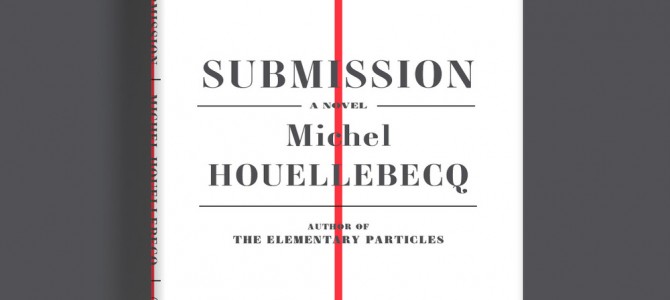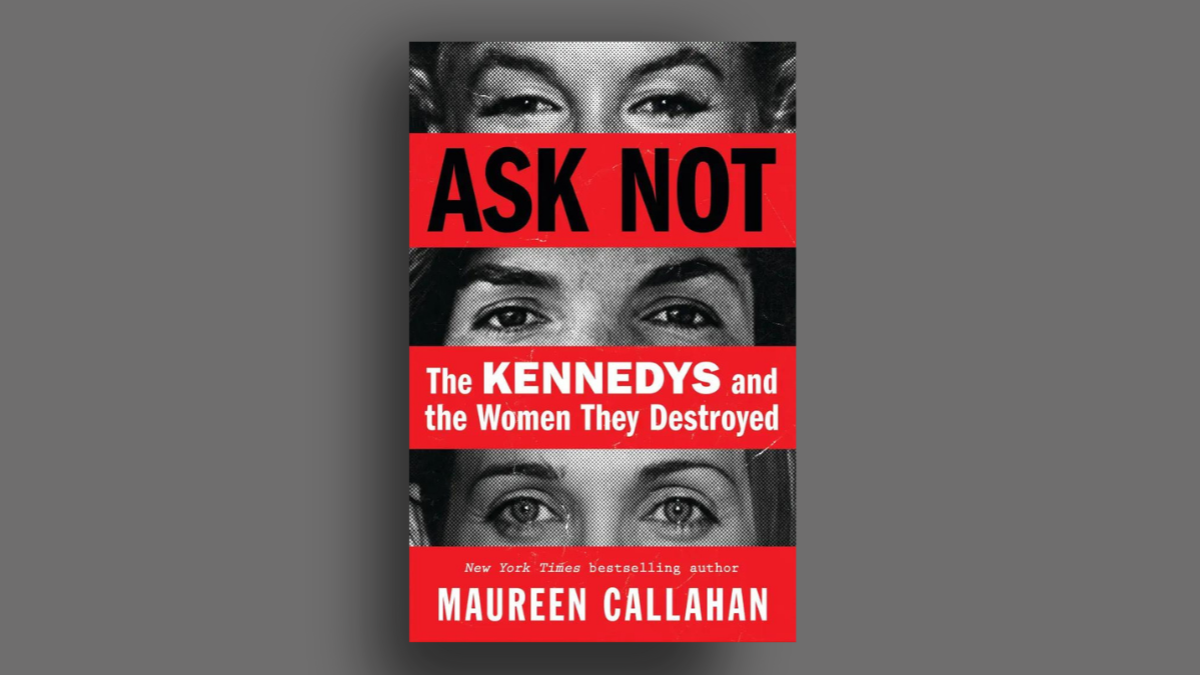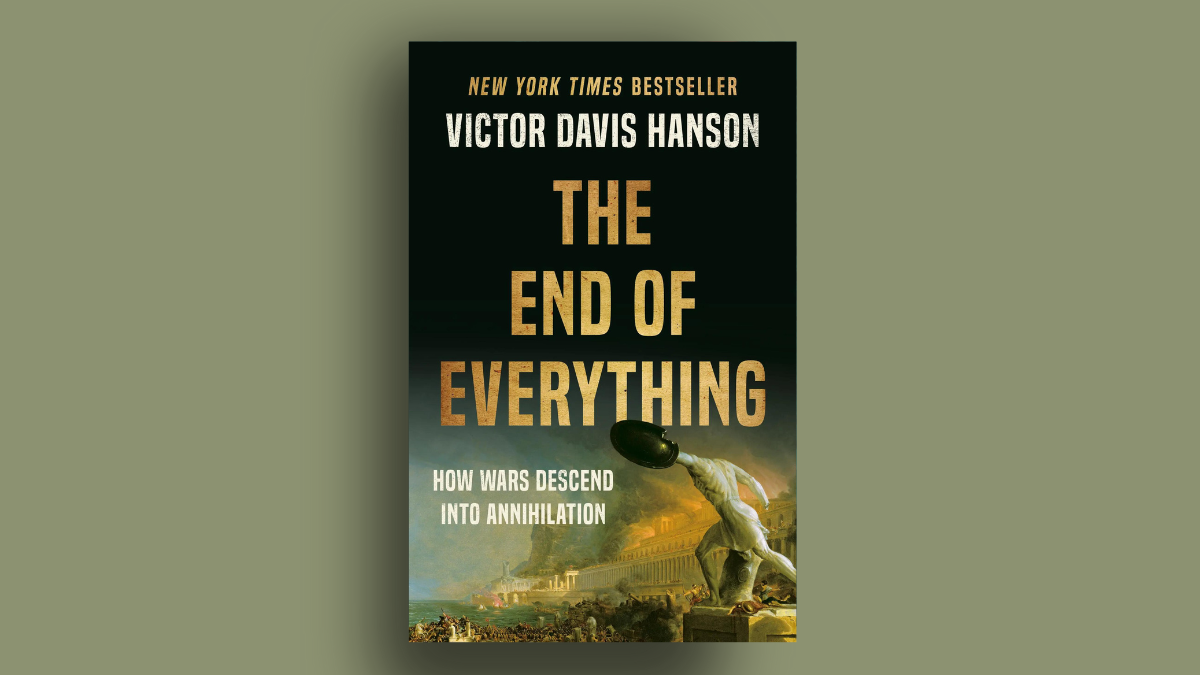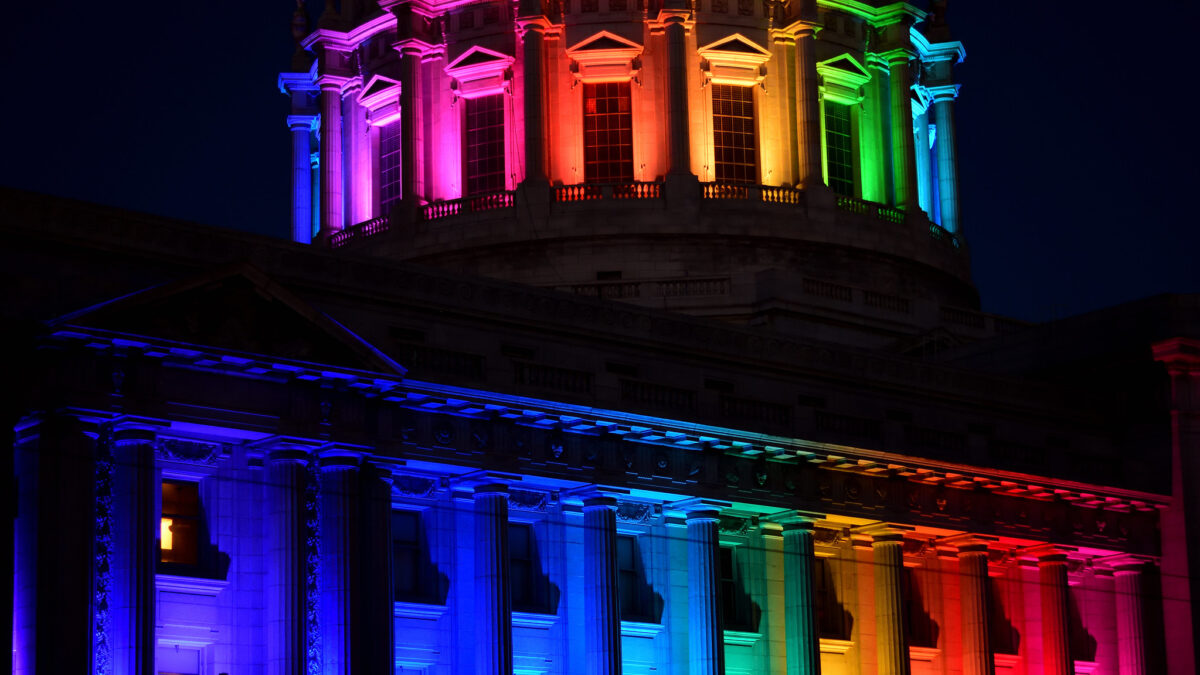
Submission, a speculative tale about the rise to power of a Muslim political party in France, was released in French on January 7, the day of the Charlie Hebdo massacre in Paris.
Although Houellebecq’s book was certainly influenced by the decades of migration from France’s former North African colonies and long-simmering—and occasionally violent—tensions between French “natives” and the country’s Muslim population, at the end of 2015 it seems more than a little prescient. In a year when ISIS has struck the heart of Paris and mass migration from Syria and Iraq have caused a continent-wide panic, this novel poses some very essential questions about the nature of modern Europe, specifically France, and the passivity of its spirit.
The Seven Year Submission
Submission takes place over the course of a year in which a moderate Muslim political party, The Muslim Brotherhood, wins regional elections and comes into power. Uninterested in Islamist fundamentalism, they run on a platform of improving education and social services, and increasing the birthrate, thus bringing the focus back to the family.
They see secularism, not Catholicism, as the enemy, and propose that Islam can help bring France back to its greatness. Rather than seeing France as the Dar al-Kufr (the realm of infidels) like the Islamists do, the party wants to bring France into the fold of Dar al-Islam (the realm where Muslim law rules). After the elections, the party implements a soft version of Islamic law, the effects of which are not too dramatic—at first.
French school and university systems are Islamified. Only Muslim men can teach at the university and all the secretarial positions are replaced with young veiled women. In order to stay in university positions, men must convert to Islam, with the added perk that university administrators will find them multiple wives. The more prestigious a position one holds, the prettier the wives.
Women are banned from wearing western clothing. If women do chose to get an education, the topics they are permitted to study are limited. Financial incentives are put in place in order to encourage them to leave the work force en masse to stay home and have children. This causes unemployment to plummet, and increases general approval ratings.
In this hypothetical world, the population of France passively yields just seven years later. Of course there is the far-right faction that fights hard to prevent the regime change, but they soon fade away. Women seem to leave their jobs gladly in order to make financial gains, and the men have little compunction with conversion. Those who don’t wish to do so just quietly retire on a large pension offered by the Saudi-funded new government. France’s reaction to a massive cultural shift in a matter of months is one of quiet acquiescence.
Cultural Impotence
The book’s main character is François, a forty year-old man who claims to love his intellectual life but gives it up with little thought once the university system is Islamified. He is utterly indifferent to human relationships, to a point that doesn’t feel at all recognizable. The only thing that he seems to love is sex. Then his sexual desire leaves him as well. Left with little else for which to live, he passively shrugs his shoulders and decides to submit to Islam. He gets rehired by the Sorbonne and leads a sort of second life with multiple wives, teaching easy classes to undergrads.
At first read, the main character feels two-dimensional and the supporting cast hollow. It seems impossible that people would ever be so unconcerned with a changing culture and a religious takeover of a militantly secular nation. However, under closer examination, François and those around him are perhaps meant to represent the milquetoast lack of a French spirit that exists today. France is a country that has lost much of its religion and national pride. They have become increasingly a people without desire, direction, or heart.
Christopher Caldwell points out in his similarly prescient 2009 book, Reflections on the Revolution in Europe, that Europe has engaged in self-shaming for so long that it reviles everything about its own culture, idolizing minority culture instead, as a kind of mea culpa for their colonial sins against the Third World. Perhaps the French today are so full of multicultural idealism, but lacking a pride in their own culture, that they would indeed go along with a religious takeover—so long as the pay is good, the wives are pretty, crime goes down, and a stable system is put into place.
There’s a moment toward the beginning of the book when the first bit of violence erupts in Paris. One of the characters says, “It’s odd. I’m not the least bit afraid.” (Reading this after the Paris attacks one can’t help thinking, “You should be!”) The comment reflects the level to which Houellebecq envisions the West watching the world burn and shrugging its shoulders. Houellebecq’s vision, while exaggerated, does hit a nerve. He’s offering us a satire, yes, but also a cautionary tale.
Liberté, Égalité, Fraternité—Laïcité?
François is Nietzsche’s “last man”—complacent, driven by his appetites, and tired of life. He is a vision of 21st century French capitulation. Houellebecq sees eventual submission because of a general sense of cultural malaise and a lack of something in which to believe or for which to live. What makes this book thought-provoking isn’t imagining the rules that Muslim leaders might put in place in Europe, but the question of how close Houellebecq’s description is to reality.
How would the so-called “natives” of France react to a Muslim political party? Would they vote for them if it came down to a contest with, say, the National Front? Would they cede whatever remains of European Catholic culture and heritage and throw away their long-held secularist beliefs?
For now, it seems like the answer is firmly “no.” Laïcité (secularism) is a treasured part of what it means to be French. Their secularism is, ironically, almost like a religion to them. But one can imagine a time where this could increasingly change. Perhaps France’s secularism, although treated with reverence, puts them more at risk of passively giving in to a religious takeover. They might be one step closer to accepting such an imagined future with their secularism than a country like America, which is much more religious. Secularism feels like shaky ground when faced with a rising Muslim population with large families and committed religious beliefs.
The idea of secular France docilely accepting Islam is interesting in light of the rise of Marion Maréchal-Le Pen, niece of party-head Marine and granddaughter of party founder Jean-Marie. An outspoken Catholic, she openly declares her intention to protect French Catholic culture. In this way she breaks from the party line, which aims to defend French laïcité from Muslim influence.
While Houellebecq sees little chance of France finding its renaissance within Christianity or laïcité, Marion, who is only 24, may represent a new generation of Catholic leaders who want to start their own tea party-style movement in France. There are evidently some in France that do not want to see this heritage fade away. In the first election since the Paris attacks, the National Front won 30 percent of the overall vote in the first round, dominating in 6 out of 13 regions, including Marion’s.
Confronting the Inevitable
The questions that Houellebecq’s book raise are obviously more relevant than even the author himself imagined when he wrote it. Since then, ISIS has twice attacked Paris and the current migrant crisis will result in large numbers of Muslims relocating permanently on the continent, including France. European birth rates are astonishingly low among “native” Europeans, but high among its new Muslim citizens and migrants.
Eventually, although probably not so soon as Houellebecq imagines, a Muslim political party will rise in France. When that happens, if France has not found something to believe in, whether it is religion, culture, or nationalism, they may accept a cultural shift toward Islam with little thought or worry, as Houellebecq describes.
When street battles begin to rage in the backdrop of the political shift, a colleague of Submission’s protagonist says, “At this point, anything could happen. Anyone who tells you otherwise is either a fool or a liar. I don’t think anyone knows what the next few weeks will bring.” This sentiment is felt today not just in France and Europe, but across the Western world as the Middle East implodes and we wait for the fallout reach out and touch us.
What will the future bring? The answer depends on whether the West still believes in anything.









